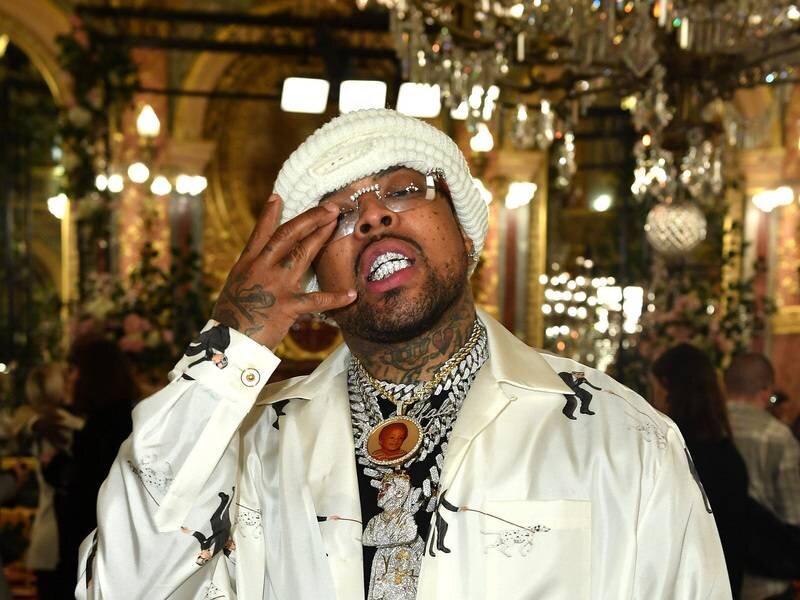Pray for Paris
Westside Gunn is an unusual rapper. After years of mixtapes, the Buffalo native released his 2016 debut album FLYGOD at the mature age of 34 on his co-founded record label Griselda Records, before they subsequently joined forces with Eminem’s Shady Records a year later. Fast forward to 2020 and Gunn’s latest album, ‘Pray for Paris’, stems from his first venture outside the United States to attend Paris Fashion Week, where Griselda had curated the soundtrack for Virgil Abloh’s ‘Off-White’ collection. Whilst there is synonymy between hip-hop and fashion, the timing of Gunn’s career achievements is peculiar. Gunn, and his brother Conway, were the first rappers from Buffalo to sign with a major record label, and they did so as very late-bloomers with a sound that harks back to the 1990s East Coast era of rap. It’s a strange and anomalous recipe for success in modern hip-hop, but it seems to be working for the duo and ‘Pray for Paris’ seems to be the last piece of the puzzle to boost them into hip-hop stardom.
The tone of Westside Gunn, and Griselda as a whole, is so clearly influenced by 1990s East Coast hip-hop in almost every way. This is probably unexpected – Gunn was born in New York in 1982 and grew up alongside the evolution of hip-hop – but the impact of this era is so clearly heard in his work. There are tales of the streets, gritty instrumentals, guns, violence – all the classic themes touched upon by New York staples like Nas, Wu-Tang and Grandmaster Flash. The album’s concept of juxtaposing wealth and capitalism alongside poverty and societal roots is a well-documented subject, but the Parisian setting does give the album a new take.
Although this sounds critical, it could be argued that it is necessary. The modern hip-hop listener did not experience the progression of the genre during this period and the cultural link between what was and what is has slowly faded. With rappers such as Lil Yachty rising to fame without ever listening to Biggie Smalls and dubbing him ‘overrated’, it could be important for both artists and fans of a newer generation to understand how we got to where we are now in hip-hop. ‘Pray for Paris’ does this extremely well, implementing features from modern rappers like Tyler, The Creator, Joey Bada$$ and Freddie Gibbs on ‘classic’ East Coast beats. It is an accessible cultural lesson in the development of hip-hop and bridges the gap between generations of rap fans.
There is so much about this album that is excellent. The frequent use of piano exemplifies both optimistic and rose-tinted views of romance in Paris on ‘French Toast’ alongside the menacing and paranoid sound of ‘George Bondo’. The melancholic and soulful ‘327’, named after the New Balance shoe and featuring the aforementioned Tyler and Joey, perfectly highlights the rags to riches concept that builds the album’s foundation and the featured combination over the beautiful beat is truly breath-taking. The instantly recognisable production and scratching of DJ Premier on ‘Shawn vs. Flair’ demonstrates the legendary beat-maker in his prime, representing every part of his repertoire that makes him so revered. Westside Gunn’s aim was to bring back the type of hip-hop that means so much to him and he does it is extremely well, showing that, when done right, the sound is timeless.
This album is a great listen for younger hip-hop fans trying to work their way back through the history of the genre. Whilst nostalgic, there is a somewhat pretentious view that older rap fans take when discussing the development of hip-hop that results in newer generations being turned away. ‘Pray for Paris’ appeases both sets of fans, throwing it back for the old-heads that miss the era they deem classic whilst introducing said period to the dominant hip-hop listenership. It’s a great history lesson and hopefully will inspire many to research more about the yesteryears of hip-hop.
